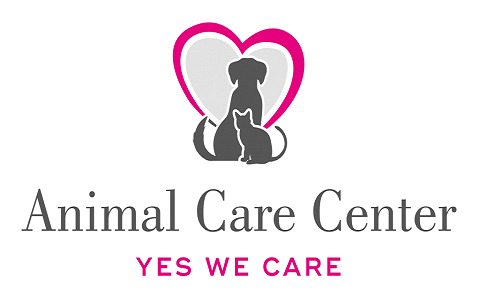Sterilization and castration of dogs and cats in Wilanów
Sterilization and castration of a dog or cat at the Animal Care Center Warszawa Wilanów veterinary clinic are treatments performed using a modern anastheological station. At the Animal Care Center Warszawa Wilanów, inhalation anesthesia is used. It is currently the safest way to use narcosis against dogs or cats - used by the best veterinary clinics around the world.

The Animal Care Center in Warsaw Wilanów carries out sterilization treatments for dogs and cats
How is the preparation for sterilization or castration at the Animal Care Center Warsaw Wilanów?
Mandatory before the surgery, it is necessary for the dog or cat to be qualified for the procedure by a veterinary surgeon. During the qualifying visit, basic dog or cat blood examinations are performed (morphology and biochemistry). In addition, during the clinical examination, the doctor may decide to perform other diagnostic tests, eg cardiology. Thanks to this, we are sure that the procedure will be safe for the patient. It should be noted that before the examination and treatment, the dog or cat must be fasted for at least 8 hours. After the positive qualification for the surgery, its date is set.

The picture shows the vet's treatment room in Warsaw Wilanów, where animals are prepared for treatments such as sterilization
How does sterilization work?
On the day of the surgery, a re-qualification is made for the sterilization procedure by the veterinary surgeon and the anesthetist. After a positive qualification for a state treatment, the patient ( dog or cat) gets medicines to prepare it for the introduction of proper inhalation narcosis. While an anesthetist watches over the patient. The treatment is carried out in the operating room at the Animal Care Center Veterinary Clinic in Warsaw Wilanów. The veterinary surgery itself is carried out within several dozen of minutes, so the patient undergoes anesthesia only for as long as it is necessary for correct castration or sterilization. During the operation the patient is under constant control with the life monitoring devices. The anesthetist has full monitoring control of the patient. After the operation the dog or cat stays under the care of an anesthetist for several hours until full awakening. The same day, the patient leaves the clinic feeling better than the condition it came in.

What are the advantages of sterilizing a dog or cat?
Thanks to the sterilization procedure, we prevent many diseases with hormonal background (imaginary pregnancies, we protect the bitches from dangerous disease, nymphomania, excessive sex drive of males). After the treatment, the dog's and cat's mental health stabilizes - they become calmer, they are not distracted and nervous, they are easier to control during a walk. The castrated dog in most cases does not mark the area with urine. Thanks to the sterilization of the cat, their is no more vocalization ( the phenomenon of loud sounds being made by the cat especially at night.) that is troublesome for cat owners, Sterilized dogs and cats become less burdensome to their owners. Patients (dogs or cats} after sterilization have a limited risk of developing selected cancers. Sterilization - like any treatment carries the risk of complications such as the occurrence of hernia or rupture of sutures. Many complications can certainly be avoided by following the instructions of the veterinarian. During the qualifying visit, the veterinarian will provide you with the necessary information about the benefits and risks of surgery and recommendations.
Care after surgery of a sterilized dog or cat
You should strictly follow the veterinarian's instructions that you will receive after the procedure. On the day of surgery, the patient should receive peace and quiet. Food or drink should be given only a few hours after the end of the treatment. In the post-operative period, it should be ensured that the animal does not damage the seams - we limit physical activity, prevent scratching or licking the wound. For the next 10 days after the surgery, the animal should wear a special post-operative clothing - which you will receive after the surgery from the veterinarian. It is also necessary to appear at a check-up visit and to administer medicines recommended by the veterinarian to support the convalescence process. In most cases, soluble sutures are used during the treatments, which eliminates the need to remove the seams after surgery.
How much does it cost to sterilize a dog or cat?
The cost of sterilization depends on several factors including from the weight of the patient, used materials during sterilization or castration. If you want to get information on how much it costs for sterilization or castration, call us or come to the Animal Care Center Warsaw Wilanów Veterinary Clinic
Any additional information about the treatments: cat sterilization, castration of the dog or sterilization of the bitch, we provide you on the spot at the Animal Care Center Wilanów veterinary clinic or by phone.
Range of services
- Deworming
- Prevention and control of external parasites
- Protective vaccination of dogs and cats
- Care for a geriatric patient
- Care of a pediatric patient
- Chip
- Issuing passports
- Issuing certificates
- Full laboratory diagnostics
- Digital diagnostic imaging (X-ray in a dog or cat) including dental
- Ultrasound (ultrasound in a dog or cat)
- Oncology of dogs and cats
- Orthopedic treatment of post-traumatic diseases (fractures, dislocations, ligament injuries - reconstructions of the knee ligament) dogs and cats
- Surgical treatment (eg castration of dogs and cats, sterilization of cats and bitches)
- Anesthesiology - inhalation anesthesia with full patient monitoring
- Dermatology of dogs and cats
- Dentistry (ultrasonic tartar removal for dogs and cats, extraction of permanent teeth, persistent milk teeth, root canal treatment, orthodontic appliances, treatment of cavities, dental x-ray for dog and cat)
- Ophthalmology of dogs and cats
- Care and therapy for pediatric and geriatric patients and for conducting chronically ill patients
- Allergology, including desensitization of dogs and cats by the veterinarian
- Reproduction of dogs and cats (pregnancy and obstetrics)

